
PLACE Pillar Highlight: Rising Tide Partners
PlaceEmpowering communities to realize their own mixed-income housing vision requires time and expertise in property acquisition. It also requires an approach that prioritizes keeping residents in their neighborhoods. This is where the help of…

Bistro to Go – Together We Find Community
Featured, One Northside, PlaceNikki Heckman is founder and owner of Bistro to Go. Established in October 2007, Bistro is much more than a restaurant, it’s known as a community staple. We sat down with Nikki to learn a little about her story and how Bistro came to fruition.
Nikki,…
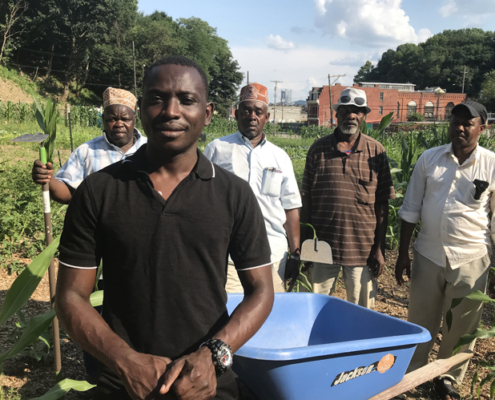 Doug Oster, Everybody Gardens
Doug Oster, Everybody GardensSomali Group Transforms Vacant City Lot into Garden/Farm with Adopt-A-Lot Program
PlaceAbdulkadir Chirambo smiles easily, especially when he’s talking about the vacant city lots the United Somali Bantu of Greater Pittsburgh have converted to a huge farm like garden. As president and spokesman of the organization, he gets serious…
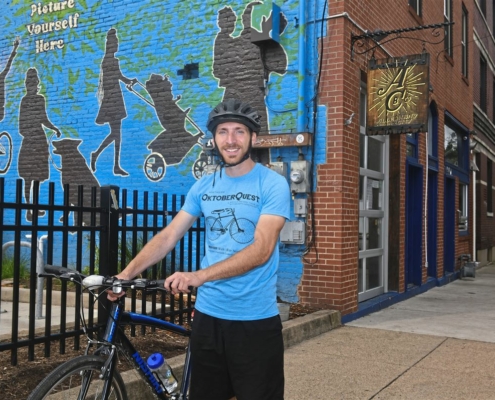 (Nate Guidry/Post Gazette)
(Nate Guidry/Post Gazette)North Side initiative marries well-being of bicyclists with businesses
PlaceA plan that has been gestating for several years within a bicycle advocacy group on the North Side finally has hatched.
The We Like Bikes! campaign is the first grassroots, multi-neighborhood initiative in the city to marry the well-being…
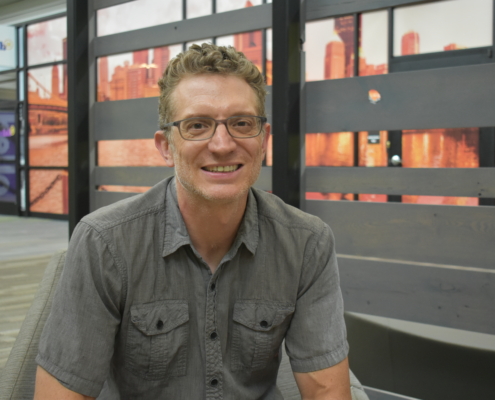
Resident Highlight: Ben Soltesz
Featured, One Northside, PlaceBen Soltesz is one resident that is doing amazing work for his neighbors and all of the residents of the Northside. Ben, a software developer, has lived in Spring Hill for 18 years. But, he is best known around town as co-founder of the Deutschtown…

Northsiders gather to celebrate reopening of historic fountain
PlaceCommunity residents gathered together for a ribbon cutting ceremony to celebrate the reemergence of the historic fountain, listen to the sounds of the Pittsburgh Banjo Club, and eat light snacks and refreshments from Bistro To Go and The Priory.
The…

North Side partnership opens CoLab18 at Nova Place
PlaceA group aiming to boost inclusive innovation and entrepreneurship on the North Side has opened a space at Nova Place and extended the number of partners involved.
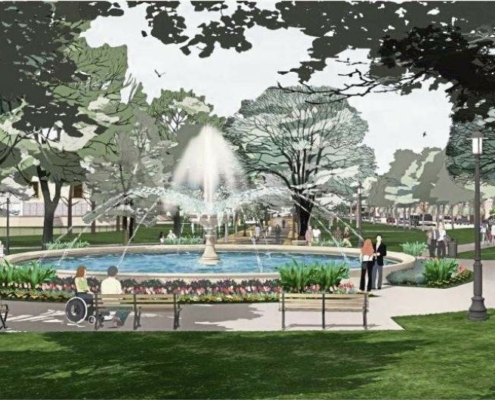
Restoration of Pittsburgh’s Allegheny Commons park includes new fountain
PlaceWorkers earlier this month began a $2.5 million restoration of the park’s northeastern corner that will replicate its 19th century design. The project’s focal point is a new fountain.
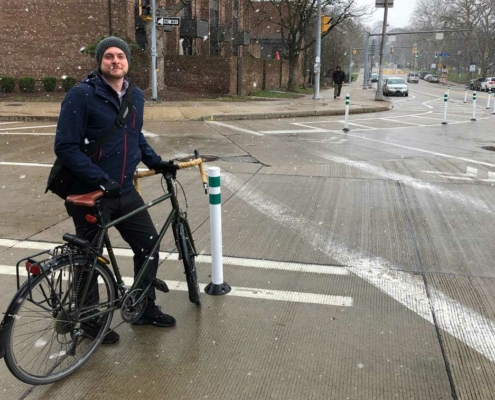
North Side Bike Advocate Is Helping Redesign Allegheny Center’s Roadways
PlaceFor the last four years, Ross has been the chair of Walk Ride North Side, the bike and pedestrian advocacy committee of the non-profit North Side Leadership Conference.

An East Ohio Street that draws Steelers, Pirates fans? Some see it, others just envision a better place for the neighbors.
PlaceBehind the covered doors and windows of the empty shops, construction workers are preparing to gut interior walls and begin renovations — setting the stage for a new-and-improved version of East Ohio that will take shape over the next two years.

